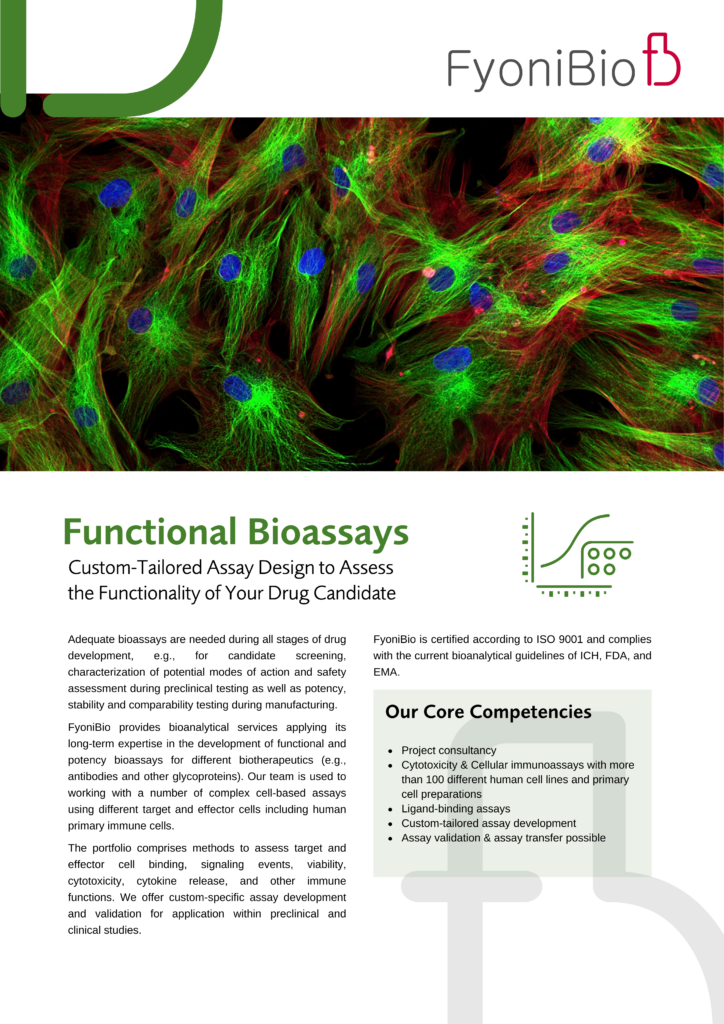
Functional and Potency Bioassays
Bioassays for Application within Preclinical and Clinical Studies
FyoniBio has long-term expertise in the development of functional and potency bioassays for different biotherapeutics (e.g., antibodies and glycoproteins). In addition to non-cellular formats, our team is also used to work with a number of complex cell-based assays using different target and effector cells including human primary immune cells. The portfolio comprises methods to assess target and effector cell binding, signaling events, viability, cytotoxicity, cytokine release and other immune functions. We offer custom-specific assay development and validation for application within preclinical and clinical studies.
The comprehensive assay portfolio covers various types of biotherapeutics from small oligonucleotides to large proteins like antibodies and multiple indications, e.g.,
- oncology
- rheumatology
- immunology and immuno-oncology
- hematology
- enzyme replacement
- endocrinology.
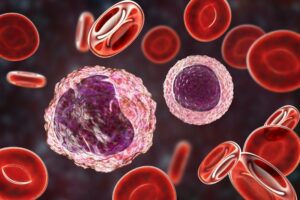
Overview of Available Functional and Potency Bioassays
Binding Assays
- Target binding
- Fc receptor binding
- Dual cell binding
- Blood cell binding
- Antigen quantification
- Binding kinetics (affinity)
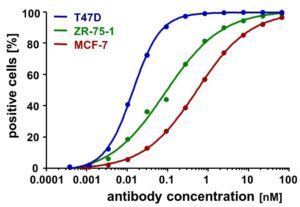
Cell Viability and Cytotoxicity Assays
- Viability
- Proliferation assays
(2D or 3D culture) - Apoptosis detection
- ADCC with different effector cells
- CDC
- Phagocytosis
- Cell cycle analysis
- nAb assay
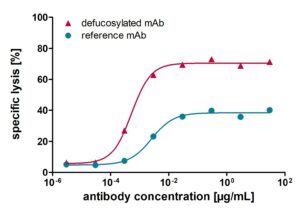
Immuno-Oncology Assays
- Isolation, differentiation and phenotyping of immune cell populations
- T cell activation
- T cell proliferation
- Immune checkpoint assays
- Mixed lymphocyte reactions
- Cytokine release
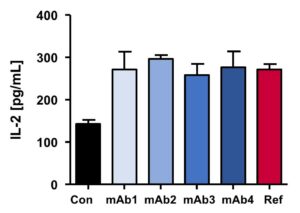
Signaling Assays
- Receptor modulation
- Receptor phosphorylation
- Signal transduction
- Reporter gene activity
- cAMP release assay
- Biomarker
Other Bioassays
- Protein or cell activation
- Internalization
- Cell Adhesion
- Migration
- Coagulation assays for blood factors
- Enzymatic activity assays
- Drug combination
- Custom-specific assay development
What conclusions can be drawn from a bioassay?
Bioassays are used to measure the biological activity and effects of a compound. They can be used to monitor quality, functionality and safety of the compound.
Cell-based assays are in vitro experimental tools using viable cells to analyze the efficacy of compounds in a biological environment. Those complex approaches are considered more physiologically relevant than standard plate-based immunoassays because they better mimic the in vivo situation for multiple reasons. Firstly, they employ proteins in their biologic conformation. Secondly, bioassays resemble a multi-cellular environment and therefore allow interaction within the cellular network. Finally, bioassays can use downstream readouts reflecting the signal transduction. Cell-based assays are particularly important for multi-functional proteins.
Cell-based Assays
To support our bioassay portfolio with a wide spectrum of cell types from different origin and histology, we run a mammalian cell culture facility with the following capabilities:
- cell culture of immortalized cells (cell lines)
- isolation, differentiation and cultivation of primary cells
- 3D spheroid cell models
- generation of stably transfected cell lines, e.g., for disease models or effector cells
- maintenance of frozen cell culture stocks
We have more than 130 different human cell lines and cell lines from several animal species available for the use in cellular bioassays. Cell lines could also be provided by the customer, if an appropriate cell line was already selected or a custom-assay should be transferred to our testing facility.
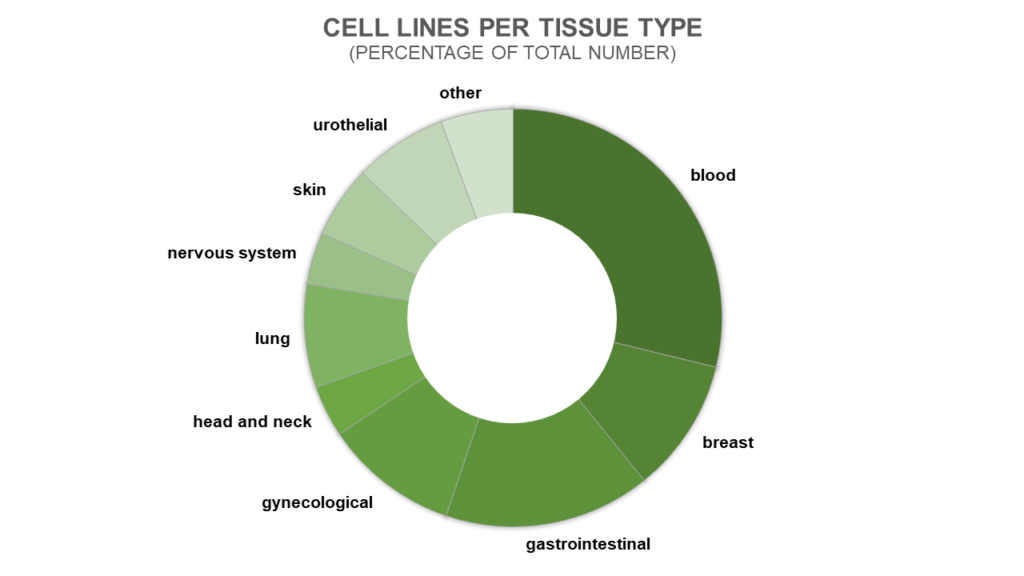
Which platforms and technologies do we use?
FyoniBio offers a wide range of innovative platforms and technologies which can be applied in functional testing, such as ELISA/ ECLIA, flow cytometry, alphaScreen®, Switchsense or RT-PCR.

